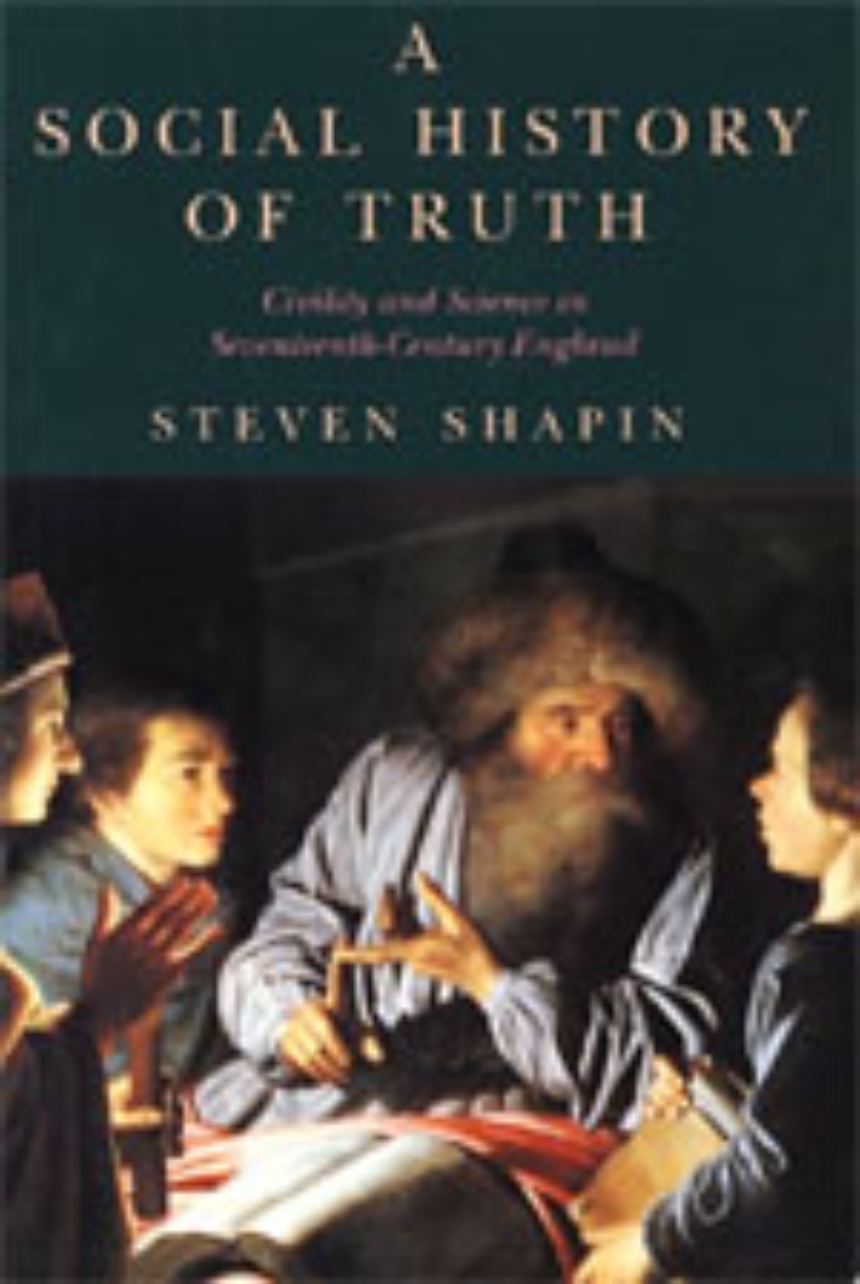A Social History of Truth
Civility and Science in Seventeenth-Century England
9780226750194
9780226148847
A Social History of Truth
Civility and Science in Seventeenth-Century England
How do we come to trust our knowledge of the world? What are the means by which we distinguish true from false accounts? Why do we credit one observational statement over another?
In A Social History of Truth, Shapin engages these universal questions through an elegant recreation of a crucial period in the history of early modern science: the social world of gentlemen-philosophers in seventeenth-century England. Steven Shapin paints a vivid picture of the relations between gentlemanly culture and scientific practice. He argues that problems of credibility in science were practically solved through the codes and conventions of genteel conduct: trust, civility, honor, and integrity. These codes formed, and arguably still form, an important basis for securing reliable knowledge about the natural world.
Shapin uses detailed historical narrative to argue about the establishment of factual knowledge both in science and in everyday practice. Accounts of the mores and manners of gentlemen-philosophers are used to illustrate Shapin’s broad claim that trust is imperative for constituting every kind of knowledge. Knowledge-making is always a collective enterprise: people have to know whom to trust in order to know something about the natural world.
In A Social History of Truth, Shapin engages these universal questions through an elegant recreation of a crucial period in the history of early modern science: the social world of gentlemen-philosophers in seventeenth-century England. Steven Shapin paints a vivid picture of the relations between gentlemanly culture and scientific practice. He argues that problems of credibility in science were practically solved through the codes and conventions of genteel conduct: trust, civility, honor, and integrity. These codes formed, and arguably still form, an important basis for securing reliable knowledge about the natural world.
Shapin uses detailed historical narrative to argue about the establishment of factual knowledge both in science and in everyday practice. Accounts of the mores and manners of gentlemen-philosophers are used to illustrate Shapin’s broad claim that trust is imperative for constituting every kind of knowledge. Knowledge-making is always a collective enterprise: people have to know whom to trust in order to know something about the natural world.
512 pages | 12 halftones, 2 line drawings | 6 x 9 | © 1994
Science and Its Conceptual Foundations series
History: British and Irish History, History of Ideas
Sociology: General Sociology
Table of Contents
List of Illustrations
Acknowledgments
Notes on Genres, Disciplines, and Conventions
The Argument Summarized
1: The Great Civility: Trust, Truth, and Moral Order
2: "Who Was Then a Gentleman?" Integrity and Gentle Identity in Early Modern England
3: A Social History of Truth-Telling: Knowledge, Social Practice, and the Credibility of Gentlemen
4: Who Was Robert Boyle? The Creation and Presentation of an Experimental Identity
5: Epistemological Decorum: The Practical Management of Factual Testimony 193
6: Knowing about People and Knowing about Things: A Moral History of Scientific Credibility
7: Certainty and Civility: Mathematics and Boyle’s Experimental Conversation
8: Invisible Technicians: Masters, Servants, and the Making of Experimental Knowledge
Epilogue: The Way We Live Now
Bibliography
Index
Acknowledgments
Notes on Genres, Disciplines, and Conventions
The Argument Summarized
1: The Great Civility: Trust, Truth, and Moral Order
2: "Who Was Then a Gentleman?" Integrity and Gentle Identity in Early Modern England
3: A Social History of Truth-Telling: Knowledge, Social Practice, and the Credibility of Gentlemen
4: Who Was Robert Boyle? The Creation and Presentation of an Experimental Identity
5: Epistemological Decorum: The Practical Management of Factual Testimony 193
6: Knowing about People and Knowing about Things: A Moral History of Scientific Credibility
7: Certainty and Civility: Mathematics and Boyle’s Experimental Conversation
8: Invisible Technicians: Masters, Servants, and the Making of Experimental Knowledge
Epilogue: The Way We Live Now
Bibliography
Index
Awards
Society for Social Studies of Science: Ludwik Fleck Prize
Won
Science, Knowledge, and Technology section, American Sociological Association: Robert K. Merton Award
Won
